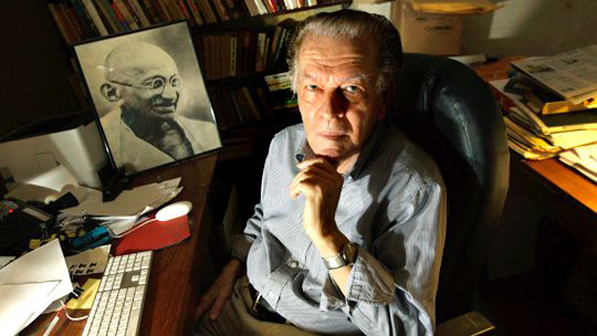Ultimately, in any non-violent resistance, you have to plan, you have to study. You have to know what the hell you are doing.
Q: You have been credited with influencing the actions of thinkers and doers around the world. But who has influenced you?
A: I have learned from the many people I have met around the world over the decades, but have no single guiding light. I learned from Gandhi, that is, Gandhi as a shrewd political strategist. I learned from the Norwegian resistance against the Quisling fascist government during World War II. I learned from the non-violent resistance undertaken by Baltic countries—Estonia, Latvia and Lithuania—whose governments also read some of my work. I don't have any political doctrine, no political messiah, just my own thinking and learning, for the most part.
Soe Thane Wrote: |
23/03/2011 |
|
"And, Aung San Suu Kyi, for all her wonderful qualities, and her heroism and inspiration for those who believe in democratic rights and the rights of Burmese people—she is not a strategist, she is a moral leader. That is not sufficient to plan a strategy"
Absolutely right. ASSK is no Gandhi Think of it: 20 years ago she had everything going for her - her party won landslide elections, the US, the Europeans, Japan, Thailand, even India supported the opposition, millions of people at home supported her, the SLORC was broke, fighting multiple insurgencies, and STILL - she was unable to get anywhere other than house arrest. Than Shwe and co. are not brilliant, had zero education, didn't know the outside world, but they ran circles around her.
But the cult of ASSK today is unassailable. Anyone who dares criticize is hunted down and condemned. What was a revolutionary movement became a pro-democracy party calling for sanctions, and is now a cult around a single woman.
Poor Burma. |
|
 |

